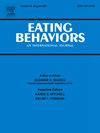采用素食和纯素饮食模式:与年轻成年大学生饮食失调行为的关系
IF 2.4
3区 医学
Q2 PSYCHIATRY
引用次数: 0
摘要
素食主义者和素食主义者的饮食越来越受欢迎,尽管有人担心饮食失调会导致、出现或加剧饮食限制的选择。目的:我们试图确定饮食失调或体重控制行为是否与大学期间新采用素食/纯素饮食有关,并评估症状意识和治疗利用情况。数据来自2015-2021年健康心理研究中的11,503名学生。我们研究了(i) SCOFF饮食失调筛查和(ii)饮食失调检查问卷中的症状特异性项目与最近采用纯素/素食饮食之间的关联。参与者的饮食失调症状的知识和经验的治疗利用也进行了评估。结果532名参与者(约5%)报告采用纯素/素食饮食。与没有改变饮食模式的学生相比,那些采用素食主义/纯素食主义的学生在过去一个月里暴食(25%对16%)、强迫运动(18%对9%)和禁食(12%对8%)的患病率更高。每一种行为都与最近采用素食/纯素饮食的可能性显著相关。SCOFF筛查阳性(2+项)与新采用素食/纯素食饮食的几率增加1.79倍(95% CI: 1.48, 2.16)相关。在饮食失调症状的知识或寻求治疗的态度和行为方面,各组之间没有观察到差异。饮食失调或体重控制行为在这群年轻人中很普遍,并且与采用素食/纯素饮食有关,尽管在饮食失调风险较高的人群中,意识和寻求帮助的程度没有提高。本文章由计算机程序翻译,如有差异,请以英文原文为准。
Adopting vegetarian and vegan eating patterns: Associations with disordered eating behaviors among young adult college students
Introduction
Vegan and vegetarian diets are increasingly popular, though there is concern that disordered eating can drive, emerge, or intensify from the choice to adopt dietary restrictions.
Objective
We sought to ascertain whether disordered eating or weight-control behaviors are associated with newly adopting a vegetarian/vegan diet during college and to assess symptom awareness and treatment utilization.
Methods
Data came from 11,503 students in the Healthy Minds Study spanning 2015–2021. We examined associations between (i) the SCOFF eating disorder screener and (ii) symptom-specific items from the Eating Disorder Examination Questionnaire, and recent adoption of a vegan/vegetarian diet. Participants' knowledge of eating disorder symptoms and experiences with treatment utilization were also assessed.
Results
Five-hundred thirty-two participants (∼5 %) reported adopting a vegan/vegetarian diet. Compared to students who did not change eating patterns, those who adopted vegetarianism/veganism had higher past-month prevalence of binge eating (25 % vs, 16 %), compulsive exercise (18 % vs. 9 %), and fasting (12 % vs. 8 %). Each behavior was significantly associated with greater odds of having recently adopted a vegetarian/vegan diet. A positive SCOFF screen (2+ items) was associated with 1.79-times (95 % CI: 1.48, 2.16) greater odds of newly adopting a vegetarian/vegan diet. There were no observed differences between groups with respect to knowledge of eating disorder symptoms or treatment-seeking attitudes and behaviors.
Discussion
Disordered eating or weight-control behaviors were prevalent in this population of young adults and were associated with adopting a vegetarian/vegan diet, though awareness and help-seeking were not elevated among those with higher eating disorder risk.
求助全文
通过发布文献求助,成功后即可免费获取论文全文。
去求助
来源期刊

Eating behaviors
Multiple-
CiteScore
4.20
自引率
3.60%
发文量
65
审稿时长
60 days
期刊介绍:
Eating Behaviors is an international peer-reviewed scientific journal publishing human research on the etiology, prevention, and treatment of obesity, binge eating, and eating disorders in adults and children. Studies related to the promotion of healthy eating patterns to treat or prevent medical conditions (e.g., hypertension, diabetes mellitus, cancer) are also acceptable. Two types of manuscripts are encouraged: (1) Descriptive studies establishing functional relationships between eating behaviors and social, cognitive, environmental, attitudinal, emotional or biochemical factors; (2) Clinical outcome research evaluating the efficacy of prevention or treatment protocols.
 求助内容:
求助内容: 应助结果提醒方式:
应助结果提醒方式:


